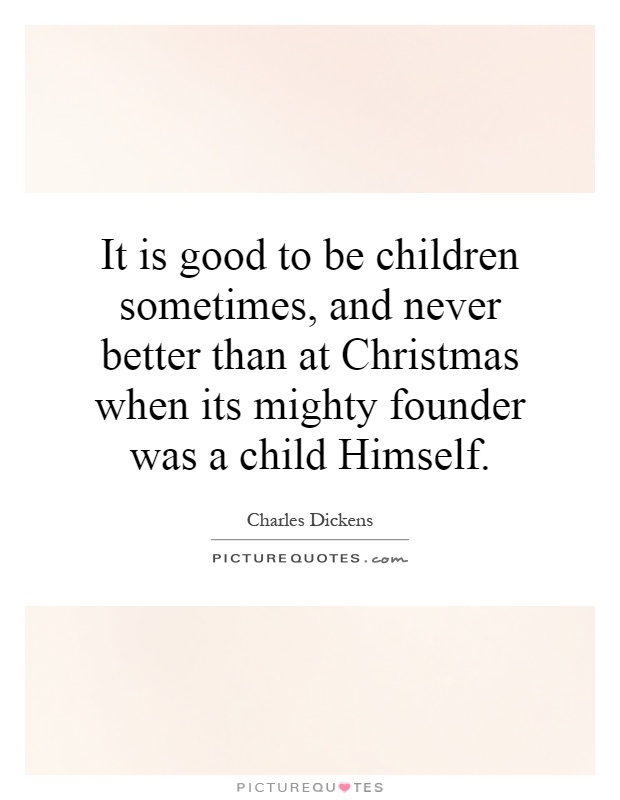It is good to be children sometimes, and never better than at Christmas when its mighty founder was a child Himself

It is good to be children sometimes, and never better than at Christmas when its mighty founder was a child Himself
Charles Dickens, the renowned Victorian author, was a master at capturing the essence of childhood in his works. His novels often featured young protagonists who faced adversity with resilience and innocence, reminding readers of the importance of embracing the childlike wonder and joy that can be found in the world. This sentiment is beautifully encapsulated in the quote, “It is good to be children sometimes, and never better than at Christmas when its mighty founder was a child Himself.”In Dickens’ most famous work, “A Christmas Carol,” the character of Tiny Tim embodies the spirit of Christmas and the innocence of childhood. Despite his physical limitations, Tiny Tim exudes love and kindness, reminding readers of the true meaning of the holiday season. Through his interactions with Scrooge, Tiny Tim teaches the importance of generosity, compassion, and the joy that can be found in simple pleasures.
Dickens himself had a tumultuous childhood, marked by poverty and hardship. His experiences growing up in London’s slums deeply influenced his writing, as he often depicted the struggles of the lower classes in his novels. However, despite his own difficult upbringing, Dickens never lost his sense of wonder and imagination. He believed in the power of storytelling to transport readers to a world of magic and possibility, much like the enchantment of Christmas.
In “A Christmas Carol,” Dickens reminds us that Christmas is a time for renewal and redemption, a time to reconnect with our inner child and embrace the spirit of giving. The character of Ebenezer Scrooge undergoes a transformation throughout the story, learning to let go of his greed and bitterness in favor of love and compassion. Through the visits of the ghosts of Christmas Past, Present, and Yet to Come, Scrooge is reminded of the joy and innocence of his own childhood, leading him to rediscover the true meaning of Christmas.












 Friendship Quotes
Friendship Quotes Love Quotes
Love Quotes Life Quotes
Life Quotes Funny Quotes
Funny Quotes Motivational Quotes
Motivational Quotes Inspirational Quotes
Inspirational Quotes